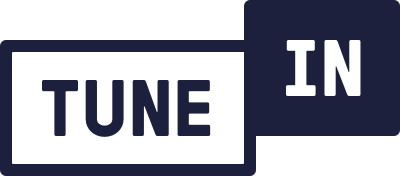
Location:
United States
Description:
Welcome to The Risky Health Care Business Podcast, where we help you prepare for the future by sharing stories, insights, and skills from expert voices in and around the United States health care world. The purpose is to inform, educate, and help organizations and individuals throughout the dental, medical, and veterinary health care industry with risk, while hopefully having some fun along the way. What is risk in health care? Where is it? How can you prepare for risk and overcome it? Why does it exist and why must it be addressed? We are in a transformational time in health care. Have our models evolved to meet the moment? Risk can no longer be ignored in health care. A risk vs reward mentality must also be coupled with risk vs regret. Gambling that an adverse event will never happen is not a viable approach to running a health care business. It is time to transform the model from reactive to proactive. In this podcast, you will hear in-depth interviews, powerful insights, resourceful skills, and more from people at the forefront of this exciting time in the health care industry. A new episode is published every 2 weeks, a long form guest interview around 30 minutes. Each episode has show notes to help you navigate the episode along with a full episode transcript. Accelerating healthcare performance is creativity...not just productivity
Language:
English
Emerging Risk
Duration:00:12:08
Supply Chain, Natural Disasters, Human Events, and Risk
Duration:00:08:14
Paul Clark, PhD, Health Care Labor & Employment Relations Professor and Researcher
Duration:00:59:35
HHS Headlines: What's New, Noteworthy, and Risky
Duration:00:12:11
Nadeem Kazi, MD, President of Arizona Medical Association and Practicing Gastroenterologist and Independent Private Practice Founder-Owner
Duration:00:35:42
Laura Coordes, Professor of Law, Sandra Day O'Connor College of Law at Arizona State University
Duration:00:36:35
Beverly Wilburn, DAADOM, Office Manager at Karl A. Smith, DDS, LLC Periodontics and Implants
Duration:00:39:33
2024 Mid-Year Risk Assessment
Duration:00:12:31
Kal Wahab, Chief Administrative Officer at Oregon Health and Science University
Duration:00:41:40
Karen Daw, Occupational Health and Safety Expert
Duration:00:40:52
Esmond Kane, Chief Information Security Officer, Steward Health Care
Duration:00:41:36
Kimberly Ruppel, Partner at Dickinson Wright
Duration:00:30:06
Kandi Wiens, EdD, Burnout and Emotional Intelligence Educator and Researcher
Duration:00:33:54
Risk Case Examples in Health Care Marketing
Duration:00:13:50
Mark Cushing, Founder & CEO at Animal Policy Group
Duration:00:48:23
Debra Henneberry, EdD and Abner Flores, School of Aviation and Transportation Technology at Purdue University
Duration:00:59:18
Rebecca Adelman, Founder at Adelman Law Firm
Duration:00:41:43
Carolyn Johnsen, Partner at Dickinson Wright
Duration:00:37:10
Samantha Arth, Senior Director at Cleveland Clinic
Duration:00:46:03
Ron Morgan, President and Chief Executive Officer at DoveLewis
Duration:00:40:40

